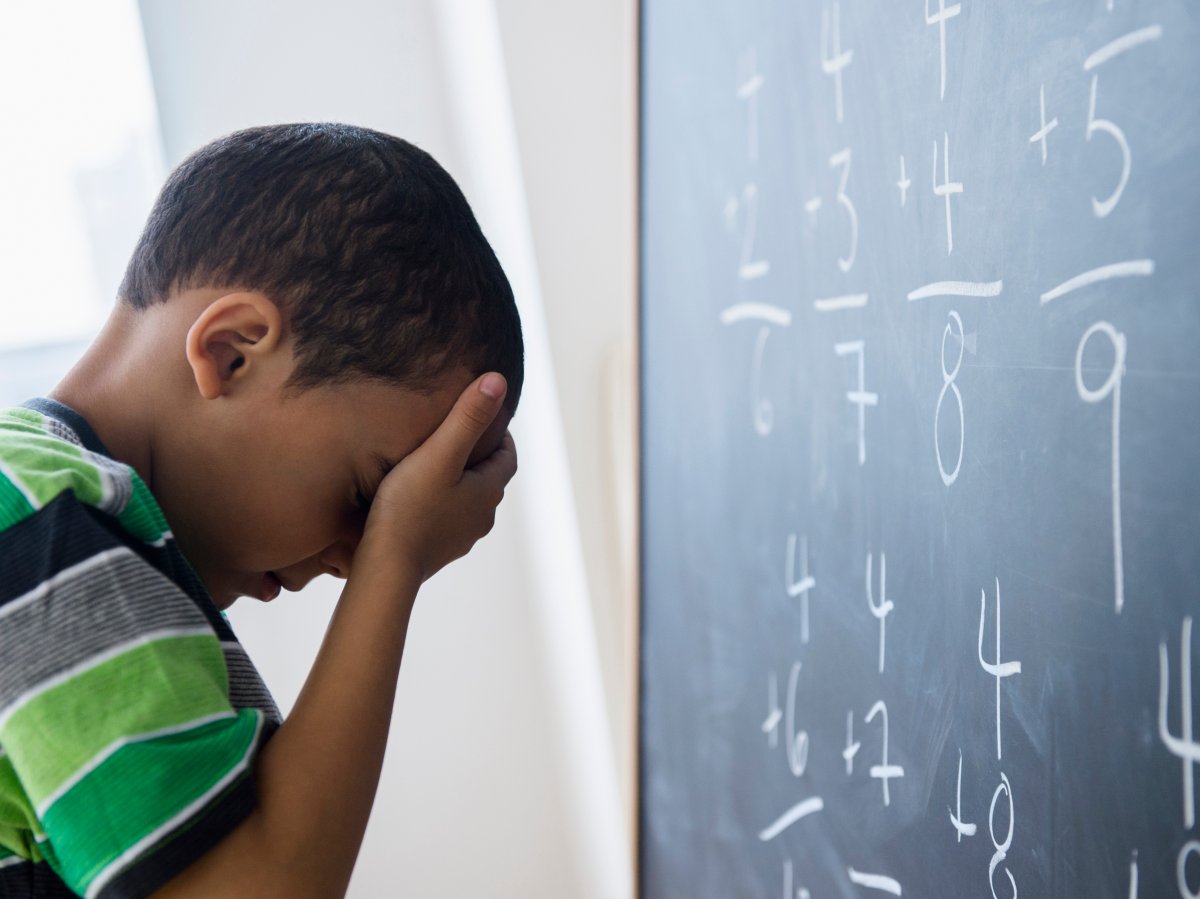Imagine having a child who displays all the signs of normal or above average development, but who struggles with simple tasks like tying their shoes or buttoning their coat. The child may also struggle with verbal expression, using a term like “cooking place” instead of restaurant, and could display hyperactive tendencies.

These are all signs of dyspraxia, also known as developmental co-ordination disorder (DCD), a condition that affects a child’s motor skills making everyday activities, self-care tasks and age-appropriate academic milestones difficult to achieve. It affects five to six per cent of school-aged children (more than ADHD and autism) and is more prevalent in boys. Yet, a lot of doctors don’t (or can’t) readily diagnose it.
WATCH BELOW: Helping parents of kids with ADHD learning disabilities

“Diagnosis typically doesn’t happen until the child is of school age,” says Nancy Pollock, associate clinical professor at the School of Rehabilitation Science at McMaster University. “Parents generally know something is off and will raise it with their pediatrician, but they’re usually told not to worry or that they’ll grow out of it. There’s a huge lack of awareness of the disorder among physicians and it’s often minimized, but it has a big impact.”
José Van Diemen, a mother of four in Lethbridge, suspected her third daughter, Megan, was missing some important developmental milestones. At almost two years of age, Megan was virtually non-verbal and still had trouble walking independently.
“As a child, Megan screamed all day,” Van Diemen says. “Over the years, she has learned how to speak, but she can’t read. We’re teaching her to memorize words.”

Van Diemen, a registered nurse, credits her pediatrician for Megan’s diagnosis, although it was her own parental intuition that indicated there was something off with her daughter.
“I took her in to see the doctor when she was a year and nine months, and said I understood that she couldn’t be diagnosed at her age but asked for an assessment. This way, we’d be able to measure her development over the next six months,” she says. “That’s when we realized it was more than just verbal.”
READ MORE: Multivitamin intake during pregnancy could reduce autism risk: study
(Another one of her daughters displayed a mild form of verbal DCD in her early years but has received speech therapy to help manage it.)
- Canadian man dies during Texas Ironman event. His widow wants answers as to why
- Several baby products have been recalled by Health Canada. Here’s the list
- Is home ownership only for the rich now? 80% say yes in new poll
- Invasive strep: ‘Don’t wait’ to seek care, N.S. woman warns on long road to recovery
Despite what Van Diemen says is a push from geneticists to find an inherited link, Pollock says there’s weak evidence indicating it’s a genetic condition. And although a considerable number of children with DCD are preterm babies, there’s no definitive link there either.
“There’s some debate about it being linked to prenatal alcohol exposure, since kids with fetal alcohol syndrome have motor skill issues, but the causation is not known,” Pollock says. “There’s probably a little bit of genetics at play and some prenatal factors, but it’s loose at this point.”
In addition to the concerns about intellectual and motor skill development, kids with DCD are at increased risk for social and mental health problems. They’re often of above average intelligence, but they require different teaching tactics and lots of repetition. They try hard, but without the proper support or acknowledgment, they’re unsuccessful and it leads to feelings of low self-esteem and depression.
“There’s more evidence that these kids can have physical consequences too. They withdraw from activity because they’re unsuccessful at doing things like playing sports, so they become inactive and we’re seeing correlations with obesity and physical fitness problems,” Pollock says. “They’re also socially isolated because they can’t do what other kids are doing. You’ll often find them on the playground by themselves and they become prime targets for bullying.”
READ MORE: Here’s how much genetics plays in a role in autism
The good news is, with therapy and support, many kids with DCD can go on to live successful and independent lives. There aren’t any medications to treat DCD (although a lot of kids are also diagnosed with ADHD, which can be treated with drugs), but with physiotherapy, occupational and speech therapy, they can learn to do activities that will help them maintain confidence and stay connected to their peers.
In Megan’s case, although she doesn’t do math or read at the same level as her Grade 3 classmates, she does participate in activities and she’s learning social skills from being among her peers.




Comments